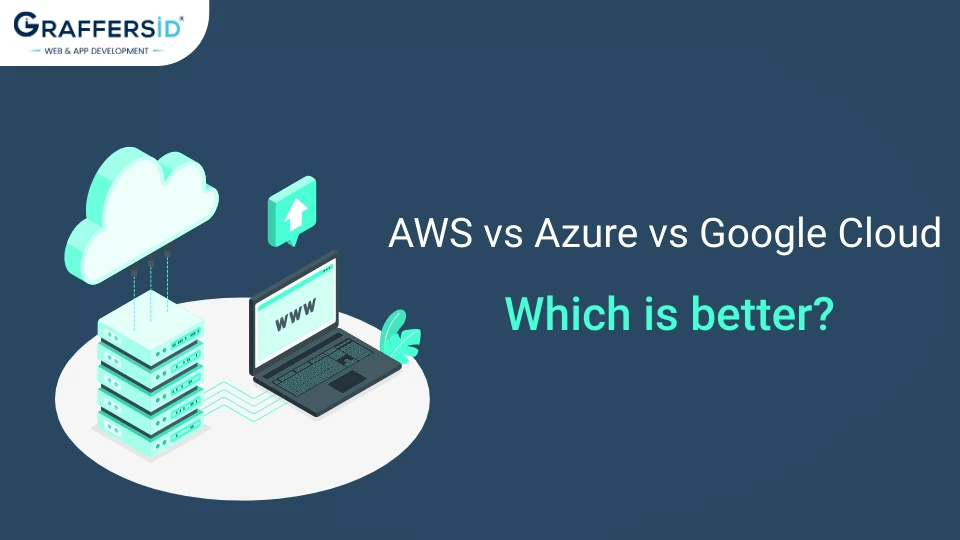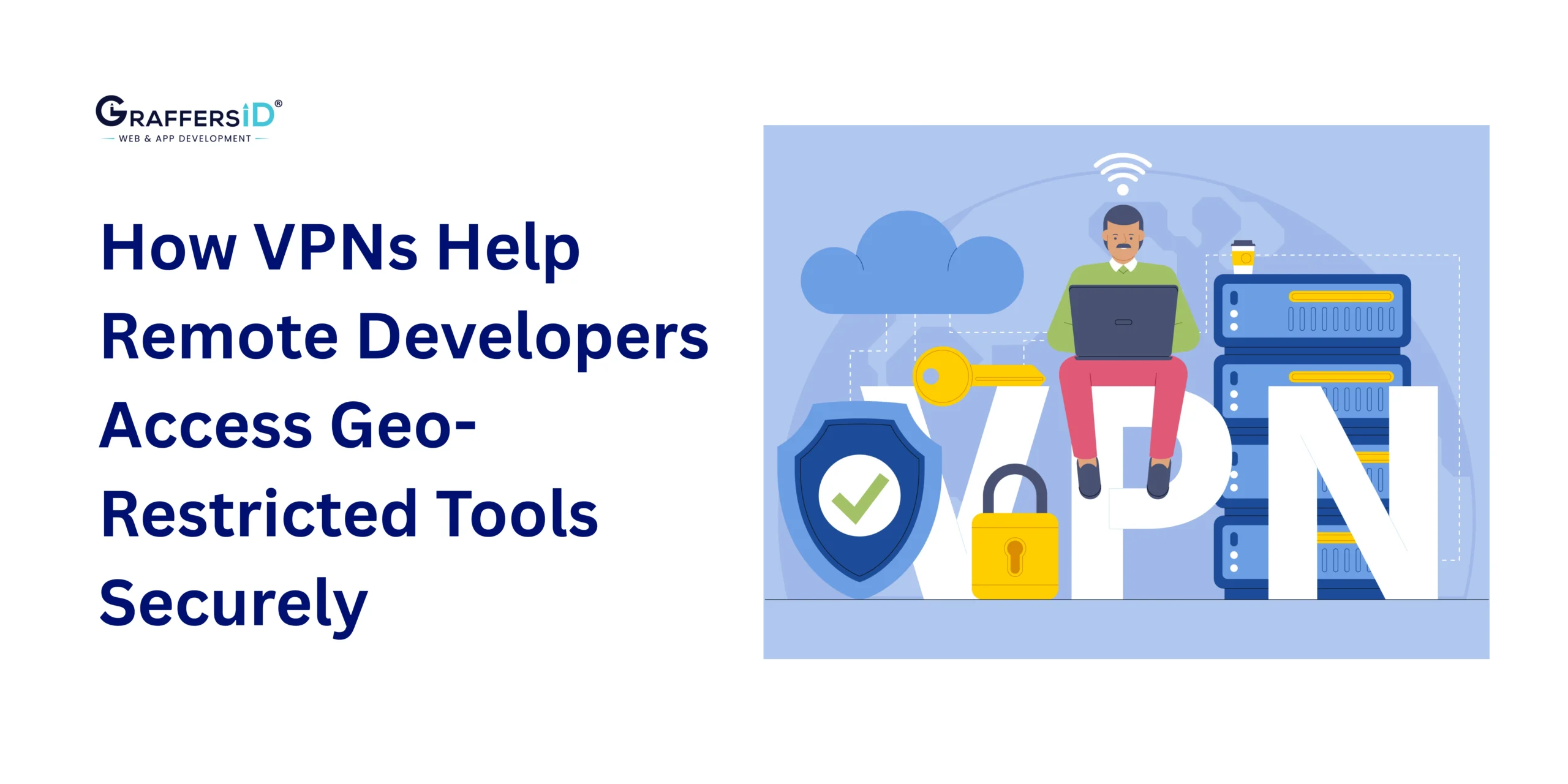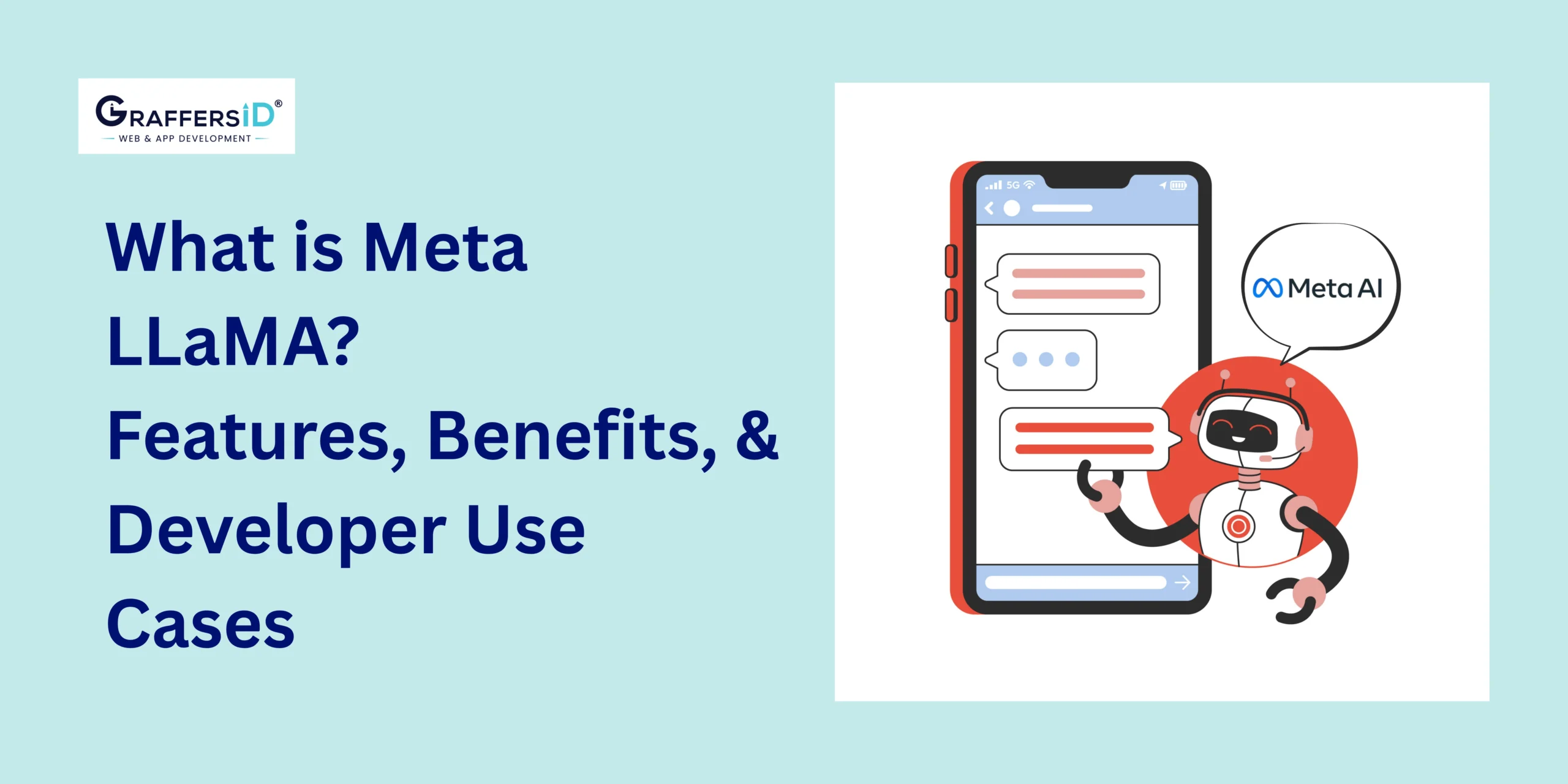Cloud computing is going viral day by day, due to its ease of use and manageability, but choosing a cloud service provider is a crucial decision for businesses and individuals alike. Amazon Web Services (AWS), Microsoft Azure, and Google Cloud Platform (GCP) are the top three contenders in 2024 and beyond. We know the importance of the best cloud computing that’s why we have come to a guide for you between AWS vs Azure vs Google Cloud, to explain to you the variety of services, advantages, disadvantages, and pricing of each platform.
Let’s break down the differences and see which one might be the best fit for your needs.
Why Cloud Computing?
Before understanding the comparison, let’s quickly cover what cloud computing is. Simply, cloud computing helps you to store and access data and applications over the internet instead of on your computer’s hard drive. This means you can use powerful servers hosted by companies like Amazon, Microsoft, and Google to run applications, store data, and much more, without needing your hardware. In 2024, cloud computing is gaining popularity, due to interesting uses and affordable solutions. Now Let’s understand, the most popular cloud computing platforms, AWS, Azure, and the last one Google Cloud.
What is AWS (Amazon Web Services)?
AWS is the oldest and most widely used cloud service provider, Which was launched in 2006, It offers a vast array of services, including computing power, storage options, and machine learning tools and according to a survey in 2022-2023, the most companies prefer to use AWS due to its large 20+ global network of data centers across multiple regions, which access to services worldwide. AWS is known for its reliability and excellent performance. One of the best parts of AWS is that it provides scalable solutions, allowing businesses to easily adjust their resources based on demand.

Key Features
AWS has the most extensive range of services, with over 200 fully-featured services. Here are some notable features of AWS includes:
- Amazon EC2: Scalable computing capacity.
- Amazon S3: Object storage with high availability.
- Amazon RDS: Managed relational database service.
- AWS Lambda: Serverless computing.
- Amazon SageMaker: Machine learning platform.
What is Azure (Microsoft Azure)?
Azure, introduced by Microsoft in 2010, is a close competitor to AWS. It integrates seamlessly with Microsoft’s software products that’s why businesses find it an attractive choice for those already using Microsoft tools. Apart from that Azure is known for its robust support for hybrid cloud solutions that help companies run applications both on-premises and in the cloud.

Key Features
Azure offers a wide range of services, particularly strong in hybrid cloud and enterprise solutions. Key features include:
- Azure Virtual Machines: Scalable computing resources.
- Azure Blob Storage: Object storage service.
- Azure SQL Database: Fully managed relational database.
- Azure Functions: Serverless computing service.
- Azure Machine Learning: AI and machine learning platform.
What is Google Cloud (Google Cloud Platform)?
Google Cloud, launched in 2011, is the youngest of the three. It leverages Google’s expertise in data analytics and machine learning that helps businesses focus on big data and artificial intelligence. Google Cloud is also praised for its innovative pricing models and commitment to sustainability and it is expected to be valued between $400 billion and $750 billion in the upcoming years.

Key Features
Google Cloud stands out in data analytics and machine learning. Notable features include:
- Compute Engine: Scalable virtual machines.
- Cloud Storage: Unified object storage.
- Big Query: Serverless, highly scalable data warehouse.
- Cloud Functions: Event-driven serverless computing.
- AI Platform: Tools and services for AI and machine learning.
Advantages and Disadvantages of AWS
You must understand each cloud platform and its key features, Now let’s understand each platform’s advantages and disadvantages to make it more clear, which is the best fit according to your requirements.
Advantages of AWS
Here are the advantages of AWS.
1. Scalability
One of the biggest advantages of AWS is its scalability, By means you can start with just a small amount of resources and scale up as your needs grow, basically you only pay for what you use, and you can easily adjust your capacity based on demand. If you want to experience seasonal spikes or rapid growth for your business AWS is a perfect fit for you.
2. Cost-Effective
As you know AWS operates on a pay-as-you-go pricing model, you don’t need to invest in expensive hardware or worry about maintaining servers. With the help of AWS, you only pay for the services you use, which can lead to significant cost savings, especially for startups and small businesses.
3. Wide Range of Services
Industry experts of cloud services love that AWS offers a comprehensive suite of services, including computing power, storage options, and databases. Due to the variety of services, many businesses experience building and deploying applications without needing to manage the underlying infrastructure. Also with over 200 services, AWS can cater to almost any business need.
4. Global Reach
AWS has data centers all around the world, enabling businesses to deploy their applications globally with just a few clicks. This global presence ensures low latency and high availability, providing a better experience for end-users regardless of their location.
5. Security
AWS takes security seriously. They offer a range of security features, including encryption, identity and access management, and compliance certifications. This helps businesses protect their data and meet regulatory requirements. AWS also continuously monitors their infrastructure to detect and respond to potential threats.
6. Reliability
AWS is known for its reliable infrastructure. With multiple data centers and a strong focus on redundancy, AWS ensures that your applications are always up and running. This reliability is crucial for businesses that need to provide consistent and uninterrupted services to their customers.
Read Also: Relational vs Non-Relational Database: Key Differences
Disadvantages of AWS
1. Complex Pricing
While the pay-as-you-go model can be cost-effective, AWS pricing can be complicated. With so many services and pricing options, it can be challenging to estimate costs accurately. Businesses need to carefully monitor their usage to avoid unexpected charges.
2. Learning Curve
AWS offers a vast array of services, which can be overwhelming for new users. There’s a steep learning curve, especially for businesses without dedicated IT staff. Understanding and managing the different services can require significant time and effort.
3. Service Limits
AWS imposes limits on certain resources to prevent abuse and overuse. While these limits can usually be adjusted, they can be a hurdle for businesses with high resource demands or sudden spikes in usage. Planning and requesting limit increases in advance is essential.
4. Downtime and Outages
Although AWS is highly reliable, it’s not immune to downtime and outages. Service disruptions, though rare, can occur and impact your applications. It’s important to have a backup plan and understand AWS’s shared responsibility model to mitigate these risks.
5. Vendor Lock-In
Migrating to AWS can make it difficult to switch to another provider later. The more AWS-specific services you use, the harder it can be to move your applications to another platform. This vendor lock-in can limit flexibility and increase dependency on AWS.
6. Technical Support Costs
AWS provides various levels of technical support, but premium support comes at an additional cost. For businesses that require extensive support, these costs can add up. It’s essential to evaluate your support needs and choose a plan that fits your budget.
Advantages and Disadvantages of Microsoft Azure
Advantages of Microsoft Azure
1. Scalability
One of the biggest advantages of Azure is its scalability. Businesses can easily scale their computing power up or down according to their needs. This flexibility ensures that you only pay for what you use, making it a cost-effective solution.
2. Global Reach
Azure has data centers located all over the world. This global presence means that you can run applications and services closer to your users, improving performance and reducing latency. It also helps in meeting data residency requirements in different countries.
3. Security
Microsoft invests heavily in security, and Azure benefits from this. It offers robust security features like advanced threat detection, multi-factor authentication, and encryption. Azure also complies with various international standards and regulations, making it a secure choice for businesses.
4. Integration with Microsoft Products
For businesses already using Microsoft products like Office 365, Dynamics 365, or Windows Server, Azure provides seamless integration. This makes it easier to move to the cloud and manage your IT environment from a single platform.
5. Cost Management
Azure provides various tools to help manage and optimize costs. You can set budgets, monitor spending, and even receive alerts when your usage is nearing predefined limits. This transparency helps businesses stay within their budget.
6. Wide Range of Services
Azure offers a vast array of services, including virtual machines, databases, AI and machine learning, IoT, and more. This diversity allows businesses to find the exact services they need, without having to look elsewhere.
Read Also: Pros and Cons of Custom Software Development
Disadvantages of Microsoft Azure
1. Complexity
Azure’s wide range of services can be overwhelming, especially for newcomers. The platform has a steep learning curve, and it can take time to fully understand and utilize all the available features.
2. Cost
While Azure can be cost-effective, it can also become expensive if not managed properly. Over-provisioning resources or failing to optimize your usage can lead to unexpectedly high bills. It’s crucial to regularly monitor and adjust your usage to avoid unnecessary costs.
3. Downtime and Reliability
Although Azure aims for high availability, it’s not immune to outages. There have been instances where Azure services experienced downtime, affecting businesses that rely on them. It’s important to have contingency plans in place to mitigate the impact of any potential outages.
4. Support
Azure’s customer support can be hit or miss. While there is extensive documentation and community support available, getting timely and effective help directly from Microsoft can sometimes be challenging, especially for smaller businesses.
5. Vendor Lock-In
Using Azure’s proprietary services and tools can lead to vendor lock-in, making it difficult to switch to another cloud provider without significant effort and cost. It’s important to consider this risk and design your applications to be as portable as possible.
Advantages and Disadvantages of Google Cloud
Advantages of Google Cloud
1. Scalability
One of the best advantages of Google Cloud is its Scalability, Whether you’re a small startup or a large enterprise, Google Cloud can grow with you. It can handle increasing workloads without compromising performance, making it an excellent choice for businesses that expect to expand over time,
2. Security
Google Cloud takes security seriously. It provides robust security features, including data encryption, secure connections, and advanced identity management. Google also regularly undergoes independent audits to ensure compliance with industry standards, giving users peace of mind about their data’s safety.
3. Global Network
Google Cloud boasts a global network of data centers. This widespread presence ensures that your applications and services run smoothly, regardless of where your users are located. It also means faster data access and reduced latency, improving overall performance.
4. Cost-Effectiveness
One of the attractive features of Google Cloud is its cost-effectiveness. You only pay for what you use, and Google offers various pricing plans to suit different needs and budgets. There are also discounts available for long-term usage, helping businesses manage their expenses better.
5. Integration with Other Google Services
Google Cloud integrates seamlessly with other Google services like Google Workspace (formerly G Suite), Google Analytics, and Google Ads. This integration simplifies workflows and boosts productivity, making it easier for businesses to manage their operations.
6. Machine Learning and AI Capabilities
Google Cloud excels in machine learning and artificial intelligence. With tools like TensorFlow and Google AI Platform, developers can easily build, train, and deploy machine learning models. This capability is beneficial for businesses looking to leverage AI for insights and automation.
Disadvantages of Google Cloud
1. Complexity
Despite its many advantages, Google Cloud can be complex to navigate, especially for beginners. The wide range of services and features can be overwhelming, requiring a steep learning curve and sometimes specialized knowledge to use effectively.
2. Limited Support
While Google Cloud offers various support plans, some users find the support options lacking compared to competitors. The basic support plan might not be sufficient for businesses that need immediate assistance, and premium support can be expensive.
3. Pricing Structure
Although Google Cloud is cost-effective, its pricing structure can be confusing. Understanding the costs associated with different services and usage patterns requires careful analysis, and unexpected charges can arise if not managed properly.
4. Fewer Data Centers Compared to Competitors
While Google Cloud has a robust global network, it still has fewer data centers compared to some of its competitors like Amazon Web Services (AWS) and Microsoft Azure. This limitation can impact redundancy and data recovery options for some businesses.
5. Regional Availability of Services
Some advanced features and services in Google Cloud are only available in certain regions. This regional availability can be a drawback for businesses operating in areas where these services are not yet accessible, potentially limiting their ability to leverage all of Google Cloud’s capabilities.
6. Vendor Lock-In
Like other cloud providers, Google Cloud poses a vendor lock-in risk. Once a business integrates deeply with Google Cloud’s ecosystem, migrating to another platform can be challenging and costly. This dependency might limit flexibility in the long run.
AWS vs Azure vs Google price comparison
AWS: AWS offers a pay-as-you-go pricing model, which means you only pay for what you use. While it provides various pricing options and discounts, such as Reserved Instances and Savings Plans, AWS can sometimes be more expensive for certain services compared to its competitors.
- Amazon EC2 (t3.micro): $0.0104 per hour
- Amazon S3 Standard Storage: $0.023 per GB per month
- Amazon RDS (db.t3.micro, MySQL): $0.017 per hour
Azure:
Azure also uses a pay-as-you-go model and offers various discounts and pricing options. Microsoft provides significant discounts for customers who already use its software, such as Windows Server or SQL Server. Azure’s pricing can be complex, but it often offers competitive rates for Microsoft-centric businesses.
- Azure Virtual Machines (B1s): $0.008 per hour
- Azure Blob Storage (Hot): $0.0184 per GB per month
- Azure SQL Database (Basic Tier): $0.021 per DTU-hour
Google Cloud:
Google Cloud is known for its customer-friendly pricing. It offers sustained use discounts, meaning the longer you use a service, the cheaper it becomes. Google also provides free tiers for some of its services, making it an attractive option for startups and small businesses looking to minimize costs.
- Compute Engine (e2-micro): $0.0076 per hour
- Cloud Storage (Standard): $0.020 per GB per month
- Cloud SQL (db-f1-micro, MySQL): $0.015 per hour
AWS vs Azure vs Google Cloud Performance and Reliability
| Feature | AWS (Amazon Web Services) | Azure (Microsoft Azure) | GCP (Google Cloud Platform) |
Compute Performance |
Wide range of instance types. | Strong integration with Windows services. | Leading in AI and ML capabilities with TensorFlow and TPUs. |
| EC2 offers high customization. | Azure VMs have solid performance with various OS support. | Custom VMs and preemptible VMs for cost efficiency. | |
Storage Performance |
S3 is highly scalable and reliable. | Azure Blob Storage is competitive in performance. | Google Cloud Storage offers high availability and performance. |
| EBS provides consistently high IOPS. | Azure Disk Storage offers good IOPS and low latency. | Persistent Disks with strong performance and cost benefits. | |
Network Performance |
Global network infrastructure with low latency. | Azure’s global network and ExpressRoute for private connections. | Google’s premium network tier for faster and more reliable connections. |
| AWS Direct Connect for dedicated connections. | Azure Front Door for improved application performance. | Cloud CDN for quick content delivery. | |
Database Performance |
Wide range of database services (RDS, DynamoDB). | Strong SQL and NoSQL database offerings. | BigQuery for fast, large-scale analytics. |
| Aurora offers high performance and scalability. | Azure SQL Database with high performance and scalability. | Cloud Spanner for global distribution and high consistency. | |
Reliability |
SLA: 99.99% for most services. | SLA: 99.99% for most services. | SLA: 99.99% for most services. |
| Multiple Availability Zones (AZs) per region. | Multiple Availability Zones (AZs) per region. | Multiple Availability Zones (AZs) per region. | |
Disaster Recovery |
Disaster Recovery options with automated backups. | Comprehensive disaster recovery solutions. | Integrated disaster recovery with automated backups. |
| Cross-region replication for high availability. | Azure Site Recovery for easy DR management. | Managed services for cross-region replication. | |
Global Reach |
25+ regions worldwide. | 60+ regions worldwide. | 35+ regions worldwide. |
| 80+ Availability Zones. | 140+ Availability Zones. | 100+ Availability Zones. | |
Latency |
Generally low latency due to a vast global infrastructure. | Low latency with a strong global presence. | Industry-leading low latency with extensive network infrastructure. |
Content Delivery |
Amazon CloudFront for CDN services. | Azure CDN for efficient content delivery. | Google Cloud CDN for high-speed content delivery. |
AI and ML Capabilities |
SageMaker for machine learning. | Azure AI and ML services. | Advanced AI/ML with TensorFlow and TPUs. |
| Comprehensive AI services and tools. | Strong integration with other Azure services. | Vertex AI for comprehensive AI development. | |
Support and Documentation |
Extensive documentation and support options. | Comprehensive support and detailed documentation. | Robust support and extensive documentation. |
| Premium Support with SLA guarantees. | Various support plans including Premier. | Premium support options with SLAs. |
AWS excels in computing and storage performance with a wide range of options and customization, along with a robust global infrastructure ensuring low latency and high reliability.
Azure integrates well with existing Microsoft services and provides strong performance in computing and databases, with comprehensive disaster recovery solutions and a vast global network.
GCP stands out in AI and machine learning capabilities, network performance, and cost-effective VM options, backed by Google’s extensive global infrastructure ensuring low latency and high availability.
AWS vs. Azure vs. Google Cloud Services: A Comprehensive Comparison
Computing Power
- AWS: AWS provides a diverse selection of instance types and configurations. Known for its flexibility and scalability, it has the largest market share.
- Azure: Provides robust support for Windows-based applications, making it ideal for businesses using Microsoft software. It also offers a variety of instance types.
- GCP: Focuses on high-performance computing and data processing. It excels in big data and machine learning tasks.
Storage
- AWS: Known for its S3 (Simple Storage Service), which is highly scalable and secure. AWS also offers various other storage solutions like Glacier for archival storage.
- Azure: Provides Azure Blob Storage, which is similar to AWS S3. It integrates seamlessly with other Microsoft services.
- GCP: Offers Google Cloud Storage, designed for high availability and durability. It integrates well with Google’s data analytics tools.
Networking
- AWS: Provides a comprehensive set of networking services, including Virtual Private Cloud (VPC), Direct Connect, and Route 53 for DNS management.
- Azure: Offers Azure Virtual Network (VNet), Azure ExpressRoute for private connections, and Azure DNS. It’s known for its hybrid cloud capabilities.
- GCP: Features Google’s global network infrastructure, which is known for its speed and reliability. It offers services like Cloud Virtual Network and Cloud Interconnect.
Pricing
- AWS: Pricing can be complex due to the vast number of services and configurations. However, AWS offers a pay-as-you-go model with options for reserved instances and savings plans.
- Azure: Also uses a pay-as-you-go pricing model and provides discounts for reserved instances. Azure’s pricing is competitive, especially for Windows-based applications.
- GCP: Known for its customer-friendly pricing, GCP offers per-second billing and sustained-use discounts, making it cost-effective for long-running workloads.
Data Analytics and Machine Learning
- AWS: Offers a broad range of analytics services, such as Amazon Redshift for data warehousing and SageMaker for machine learning.
- Azure: Provides Azure Synapse Analytics (formerly SQL Data Warehouse) and Azure Machine Learning. It integrates well with Microsoft’s business intelligence tools.
- GCP: Excels in this area with BigQuery for data warehousing and Vertex AI for machine learning. Google’s expertise in AI and data processing is a significant advantage.
Security
- AWS: Provides a robust security framework with features like Identity and Access Management (IAM), encryption, and compliance certifications.
- Azure: Offers extensive security measures, including Azure Security Center, IAM, and a wide range of compliance certifications.
- GCP: Focuses heavily on security with tools like Cloud IAM, encryption by default, and numerous compliance certifications. Google’s security infrastructure is one of the most advanced in the industry.
AWS vs Azure vs Google Cloud: Which Is Better?
In 2024, When deciding between AWS, Azure, and Google Cloud, the best cloud services in 2024, consider factors such as:
- Services Offered: Evaluate the specific services and features each platform offers and determine which aligns best with your business needs.
- Integration: If your business heavily relies on Microsoft tools, Azure might be the most seamless option. However, AWS and GCP also offer integrations with various third-party tools.
- Cost: Compare pricing models, including pay-as-you-go, reserved instances, and discounts, to determine the most cost-effective option for your workload.
There is no one-size-fits-all answer in the AWS vs Azure vs Google Cloud debate. Each platform has its strengths and is suitable for different use cases. AWS leads in scalability and breadth of services, Azure excels in hybrid capabilities and Microsoft integrations, while Google Cloud stands out in AI and data analytics. Ultimately, the best choice depends on your business requirements, budget, and long-term strategy. Consider consulting with cloud experts or conducting a pilot project to determine your business’s most suitable cloud service provider.




